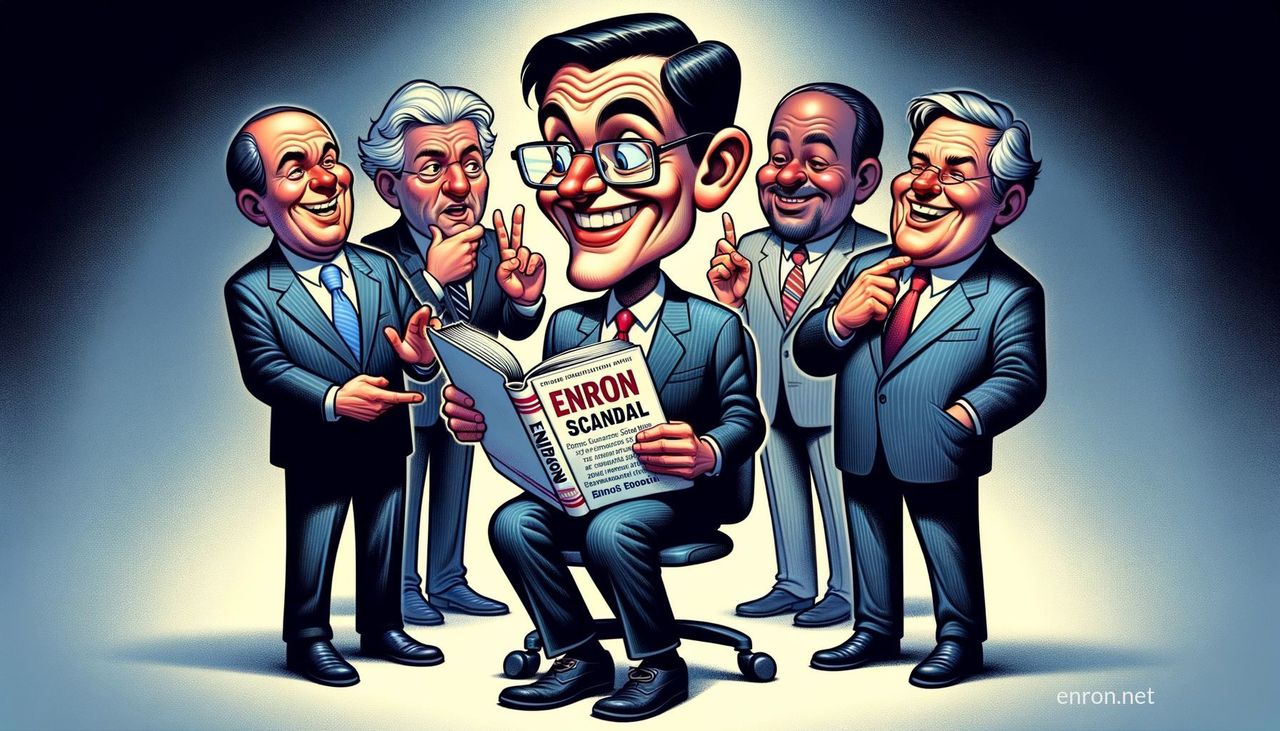Enron Unraveled: The Rise and Fall of America's Most Notorious Energy Empire

A Deep Dive into the Scandal, Characters, and Lessons from the Collapse of Enron. The Enron Scandal: Cultural Reflections in Documentaries, Books, and Movies
The Enron scandal was a watershed moment in corporate America, revealing the deep-seated issues within the financial system.
Through meticulous research, engaging narratives, and compelling visuals, the documentaries, books, and movies exploring this scandal have provided invaluable insights into the mechanisms of corporate fraud.
They not only inform but also educate and caution against the destructive potential of unbridled corporate ambition.
As we continue to learn from Enron’s downfall, these cultural depictions remain essential resources for understanding and addressing the roots of corporate corruption.
The Books
"The Smartest Guys in the Room: The Amazing Rise and Scandalous Fall of Enron" by Bethany McLean and Peter Elkind
Arguably the most comprehensive account of the Enron debacle, Bethany McLean and Peter Elkind's "The Smartest Guys in the Room" has been lauded for its meticulous research and compelling narrative. McLean, a journalist with Fortune magazine, originally penned an article questioning Enron's financial stability, which led her to co-author this definitive book with Elkind.
The book explores the rise of Enron from its humble beginnings as a natural gas pipeline company to its ascension as a Wall Street darling, before its ultimate collapse amid accusations of corporate fraud and corruption. What sets this book apart is its ability to humanize the story. McLean and Elkind introduce the key players—Jeffrey Skilling, Kenneth Lay, and Andrew Fastow—with vivid detail, delving into their personalities, motivations, and eventual downfalls. Their investigation revealed the astonishing arrogance and reckless behavior that led to one of the biggest scandals in corporate history.
"Conspiracy of Fools" by Kurt Eichenwald
Kurt Eichenwald's "Conspiracy of Fools" offers a narrative-driven account of the Enron scandal akin to a true-crime thriller. With a focus on the internal machinations within Enron, Eichenwald presents an in-depth analysis of the company’s fraudulent activities. He takes readers behind the scenes, giving them an insider view of the decision-making processes that led to Enron's downfall.
Eichenwald's ability to weave complex financial information into a gripping story makes this book an essential read for anyone trying to understand the intricacies of the Enron scandal. His portrayal of the cultural environment within Enron—marked by a toxic blend of greed, hubris, and ethical decay—sheds light on how such a grandiose fraud could unfold.
The Documentaries
"Enron: The Smartest Guys in the Room"
This 2005 documentary, directed by Alex Gibney and based on McLean and Elkind’s book, transforms their detailed written account into a visual narrative that is both informative and engaging. The film uses archival footage, interviews with former Enron employees and experts, and corporate videos to paint a vivid picture of the company's rise and fall.
Gibney's documentary excels in explaining complex financial concepts in a way that is accessible to the general public. Through sobering interviews and damning internal videos, the film exposes the manipulative strategies Enron executives used to deceive investors, regulators, and the public. The documentary doesn't just recount events; it provides a stark cautionary tale about the destructive power of corporate greed.
"The Crooked E: The Unshredded Truth About Enron"
Produced by CBS and adapted from the book "Anatomy of Greed" by Brian Cruver, this 2003 television film offers a semi-fictionalized account of life inside Enron. Cruver’s perspective as a former Enron employee brings a personal touch to the narrative, detailing his experiences and observations as the scandal unfolded.
The film provides a dramatized but insightful look into the corporate culture at Enron, highlighting how the company’s aggressive and unethical practices permeated every level of the organization. Its emphasis on personal stories helps to humanize the broader financial narrative, making the scandal more relatable to viewers.
The Movies
"Enron: The Rise and Fall"
While not as widely known as other documentaries, this film offers an analytical view of the Enron scandal. It dissects the financial strategies employed by Enron executives and explores the broader impact of their actions on employees, investors, and the market. The film serves as an important educational resource, breaking down the technical aspects of the scandal in an accessible manner.
"The Crooked E"
Interestingly, "The Crooked E," the television adaptation mentioned earlier, also fits into this category. It blends dramatic storytelling with factual recounting, making it a unique piece that straddles the line between documentary and drama. By focusing on the personal journey of a former Enron employee, the film captures the human cost of corporate malfeasance in a way that pure documentaries often can't.
Impact and Legacy
The cultural depictions of the Enron scandal in books, documentaries, and movies have collectively enhanced public understanding of corporate fraud's complexities. They offer multiple perspectives—from personal stories of affected employees to detailed analyses of financial misdeeds—providing a well-rounded view of the events.
These works also serve as important historical documents, preserving the narrative of the Enron scandal for future generations. They remind us of the dangers of unchecked corporate greed and the importance of transparency and accountability in the business world.
Moreover, these cultural products have sparked discussions about financial regulations and corporate governance, pushing for reforms to prevent similar scandals. By keeping the Enron story alive in the public consciousness, these books, documentaries, and movies encourage ongoing vigilance against corporate malpractices.